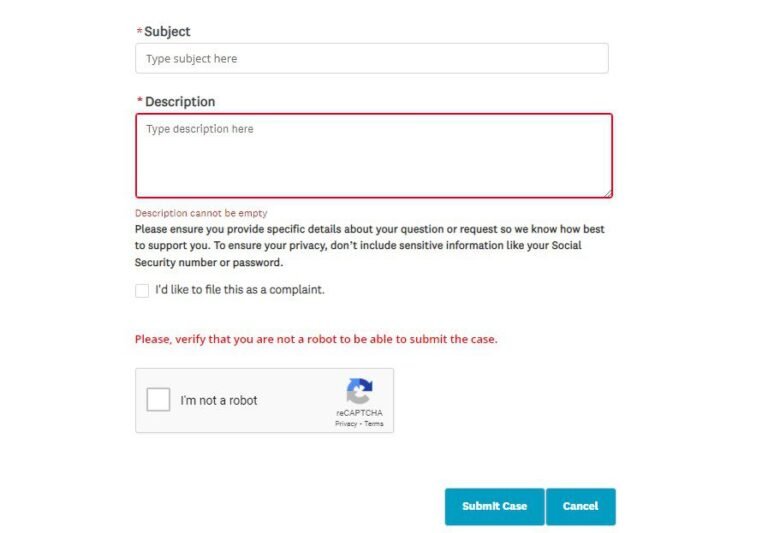Is Digital Real Estate Legit? Exploring the Facts
✅Yes, digital real estate is legit! Virtual properties are booming, with profitable investments in metaverse land and domain names. Explore the future now!
Yes, digital real estate is legit. The concept of digital real estate involves purchasing, selling, and leasing virtual properties, such as domain names, websites, and even virtual land in online worlds. It has become a growing investment opportunity, driven by the increasing importance of online presence for businesses and the expansion of the metaverse. However, like any investment, it comes with its risks and requires careful consideration.
To fully understand the legitimacy and potential of digital real estate, it’s essential to delve into the different aspects and opportunities it presents. In this article, we will explore the various types of digital real estate, the market trends, the potential returns on investment, and the risks involved. We will also provide tips for those interested in entering the digital real estate market, ensuring that you have the knowledge and tools to make informed decisions.
Types of Digital Real Estate
Digital real estate can be categorized into several main types, each with its own unique opportunities and challenges:
- Domain Names: These are the web addresses that users type into their browsers to visit specific sites. Premium domain names can be highly valuable and are often bought and sold for significant sums.
- Websites: Established websites with high traffic and revenue generation can be lucrative investments. Purchasing a website involves acquiring its content, traffic, and revenue streams.
- Virtual Land: In virtual worlds and metaverse platforms like Decentraland and The Sandbox, users can buy, sell, and develop virtual land parcels. These can be used for various purposes, including virtual stores, event spaces, and advertisements.
- Social Media Accounts: Popular social media accounts with a large following can also be considered digital real estate, as they can generate income through advertising and sponsorship deals.
Market Trends and Potential Returns
The digital real estate market has seen substantial growth in recent years. For example, the market for premium domain names has seen record-breaking sales, with some domains selling for millions of dollars. Similarly, the rise of the metaverse has led to significant investments in virtual land, with companies and individuals purchasing plots to establish a presence in these emerging digital worlds.
According to industry reports, the global virtual real estate market is expected to grow at a compound annual growth rate (CAGR) of 31.2% from 2021 to 2028. This growth is driven by increasing interest in virtual reality, augmented reality, and blockchain technologies.
Potential returns on digital real estate investments can be substantial, but they vary widely depending on the type of asset and market conditions. For instance, a well-maintained website with consistent traffic can generate steady revenue through advertising, affiliate marketing, and e-commerce. On the other hand, virtual land investments may yield high returns if the platform gains popularity and demand for land increases.
Risks and Considerations
As with any investment, digital real estate comes with its risks. Here are some critical factors to consider:
- Market Volatility: The value of digital assets can fluctuate significantly based on market trends, technological advancements, and consumer preferences.
- Regulatory Uncertainty: The regulatory environment for digital real estate, especially virtual land and blockchain-based assets, is still evolving. Changes in regulations can impact the value and legality of these investments.
- Security Concerns: Digital assets are susceptible to cyber threats, such as hacking and fraud. It’s crucial to implement robust security measures to protect your investments.
- Liquidity Issues: Selling digital assets, particularly niche domain names or virtual land, can sometimes be challenging, leading to potential liquidity problems.
Tips for Investing in Digital Real Estate
For those interested in exploring digital real estate, here are some tips to help you get started:
- Conduct Thorough Research: Understand the specific market and asset type you’re interested in. Research current trends, historical data, and future projections to make informed decisions.
- Diversify Your Portfolio: Just like traditional real estate, diversifying your digital real estate investments can help mitigate risks and maximize potential returns.
- Stay Informed: Keep up-to-date with industry news, regulatory changes, and technological advancements that could impact your investments.
- Seek Professional Advice: Consider consulting with experts or financial advisors who specialize in digital real estate to guide your investment strategy.
Cómo la tecnología blockchain asegura las transacciones de bienes raíces digitales
When it comes to digital real estate, one of the most pressing concerns for both buyers and sellers is the security and transparency of transactions. This is where blockchain technology plays a crucial role in ensuring the integrity of these transactions.
Blockchain is a decentralized and distributed ledger technology that provides a secure and transparent way of recording transactions. Each transaction is recorded in a “block” and linked together in a chronological “chain,” hence the name blockchain. This technology ensures that once a transaction is recorded, it cannot be altered or tampered with, providing a high level of security and trust in the digital real estate market.
Benefits of Using Blockchain in Digital Real Estate Transactions
Transparency: One of the key benefits of using blockchain in digital real estate transactions is the transparency it offers. All parties involved in the transaction can view the details of the transaction, reducing the risk of fraud and ensuring trust among buyers and sellers.
Security: Blockchain technology encrypts and stores transaction data across a network of computers, making it extremely secure. Each block is linked to the previous one using cryptographic principles, making it nearly impossible for hackers to alter the data, providing a secure environment for digital real estate transactions.
Case Study: Propy
One real-world example of blockchain being used in digital real estate transactions is Propy, a global property store and decentralized title registry. Propy uses blockchain technology to streamline the process of buying and selling real estate, allowing for secure and transparent transactions across borders.
Key Features of Blockchain in Digital Real Estate
Smart Contracts: Blockchain technology enables the use of smart contracts, which are self-executing contracts with the terms of the agreement directly written into code. This automates and enforces the terms of the contract, reducing the need for intermediaries and ensuring a smooth digital real estate transaction process.
Immutable Ledger: The decentralized nature of blockchain ensures that once a transaction is recorded, it cannot be altered. This immutable ledger provides a clear and transparent history of ownership for digital real estate properties, reducing disputes and fraud.
Comparación entre bienes raíces digitales y propiedades físicas tradicionales
When discussing digital real estate versus traditional physical properties, it’s essential to analyze the key differences and similarities between these two types of assets. Let’s delve into a comparison to understand the unique aspects of each:
Ownership:
With digital real estate, ownership is often represented by non-fungible tokens (NFTs) on blockchain platforms. These NFTs provide indisputable proof of ownership and authenticity for digital assets such as virtual land, buildings, or domains. On the other hand, traditional properties involve legal deeds and paperwork to establish ownership rights.
Accessibility:
Digital real estate offers unparalleled accessibility since transactions can occur online, allowing investors worldwide to participate seamlessly. In contrast, physical properties may require in-person visits, lengthy paperwork, and geographical limitations when it comes to buying, selling, or renting.
Scarcity and Value:
The concept of scarcity plays a crucial role in both digital and physical real estate. In the digital realm, scarcity is artificially created through limited editions of NFTs, driving up the value of unique digital assets. Similarly, physical properties in prime locations or with distinctive features command higher prices due to their scarcity and desirability.
Revenue Generation:
Both digital and physical properties offer opportunities for revenue generation. Digital real estate can generate income through virtual businesses, advertising, or renting out virtual spaces for events. Traditional properties, on the other hand, can provide rental income, capital appreciation, or profits from property development.
Flexibility and Maintenance:
One of the advantages of digital real estate is its inherent flexibility and ease of maintenance. Digital assets can be easily modified, upgraded, or repurposed without incurring significant costs, providing owners with agility in responding to market trends. In contrast, physical properties require ongoing maintenance, renovations, and compliance with building regulations, which can be more complex and costly.
By comparing these aspects of digital real estate with traditional physical properties, investors can gain a comprehensive understanding of the unique characteristics and potential benefits of each asset class.
Frequently Asked Questions
Is digital real estate a legitimate investment?
Yes, digital real estate involves buying and selling virtual properties like websites and domain names, which can be profitable.
How can I start investing in digital real estate?
You can start by researching the market, identifying profitable niches, and considering buying existing digital assets or creating your own.
What are the advantages of investing in digital real estate?
Some advantages include lower overhead costs, passive income potential, and the ability to scale your investments easily.
Are there any risks associated with digital real estate investments?
Yes, risks include market volatility, technological changes, and the need for ongoing maintenance and updates.
Can I make a full-time income from investing in digital real estate?
Yes, many investors have successfully turned digital real estate investments into a full-time income stream with proper research and strategy.
How can I learn more about digital real estate investing?
You can explore online resources, attend webinars, and connect with experienced investors in the digital real estate community.
- Research the market trends in digital real estate.
- Identify profitable niches for investment.
- Consider buying existing digital assets or creating your own.
- Understand the risks and rewards associated with digital real estate investments.
- Connect with experienced investors for guidance and mentorship.
- Stay updated on industry news and technological advancements.
Feel free to leave your comments and questions below. Check out our other articles on digital real estate investing for more valuable insights!







